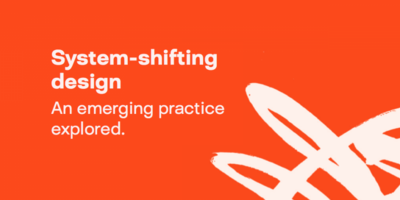Independence Matters

Launched in May 2012, Independence Matters was a Design Challenge run in partnership with Innovate UK (formerly Technology Strategy Board) to develop services that promote independence in later life. Through the programme we've funded seven inspiring start-ups.
The problem
Like other developed economies, the UK has a rapidly ageing population. Over the next 25 years, the number of people aged 65+ will rise from 10.1 million to 16.7 million – an increase of 6.6 million people.
As we grow older, we can experience changes that diminish our ability to exercise choice and control. We experience changes in our physical and mental abilities and life changes such as retirement and bereavement.
In later life, we rely on services that help us to navigate these changes, stay independent and live our lives the way we want to. We saw this need for services as an opportunity for business and social innovation, inspiring our Independence Matters Design Challenge.
The insight
Social isolation is one of the biggest threats to wellbeing in later life, but existing 'befriending' services don't work for many.
Mat Hunter, Chief Design Officer, Design Council
As we age, loneliness becomes a significant issue and raises the question of how to enable people to live well in their own homes while remaining connected to their communities. Social isolation is also linked to malnutrition: some older adults struggle to cook for themselves – perhaps due to disability, limited mobility, illness, a short term problem like a broken leg or losing a partner who was the primary cook.
We felt that the Design Challenge process could be used to create digital services to engage and empower older adults – addressing both the social and economic costs of isolation. This would in turn help change deep-rooted negative attitudes towards ageing and old age.
Our response
Independence Matters challenged teams of designers, industry partners, service providers and third-sector organisations to propose how they would tackle problems associated with independence in people aged 65+. In particular, they were asked to look at two key aspects of independence: eating well and social connectedness.
The seven teams who won funding all worked with prospective users to turn their ideas into reality. Collectively, they spoke with more than 2,000 older adults and worked closely with more than 400 older adults to develop their ideas. Each team painstakingly built up a dedicated community of core supporters who took a leading role in the development of the service. Piloted in real time, the services continually integrated user feedback into their development.
The results
After six months of development – the end of our challenge – the seven services were at proof of concept or in the early stages of operation.
Casserole is a food-sharing network, bringing local communities together around delicious home cooked food.
Room for Tea is a new kind of home-sharing network. It connects interns who need short-term, affordable accommodation in London with hosts who have spare capacity in their homes.
Gusto is a group based in Shropshire through which members can do more of the things they love, try new experiences, meet new people and socialise.
The After Work Club is a new social network for men who don’t want to be 'retired'. It aims to inspire, connect and empower them to do something amazing with this time in their lives.
The Amazings (since launching it has changed its name and focus) allowed passionate older adults the opportunity to capitalise on their life experience and offer their skills as short and long courses.
Meet2Eat teaches a range of nutrition and kitchen basics to those that need it most. The service is delivered through a combination of interactive demonstrations, group and solo activities and guided learning.
League of Meals helps everybody cook better and waste less. It shares older adults’ knowledge and tips about home cooking through digital channels and in collaborative cooking sessions.
Looking back at the end of the programme, what is striking is the extent to which both design and technology were deeply intertwined in the development of the services we funded. The teams drew on attributes from both design – being creative, visual, human-centred and iterative – and technology – being innovative, scalable and empowering.
Subscribe to our newsletter
Want to keep up with the latest from the Design Council?

